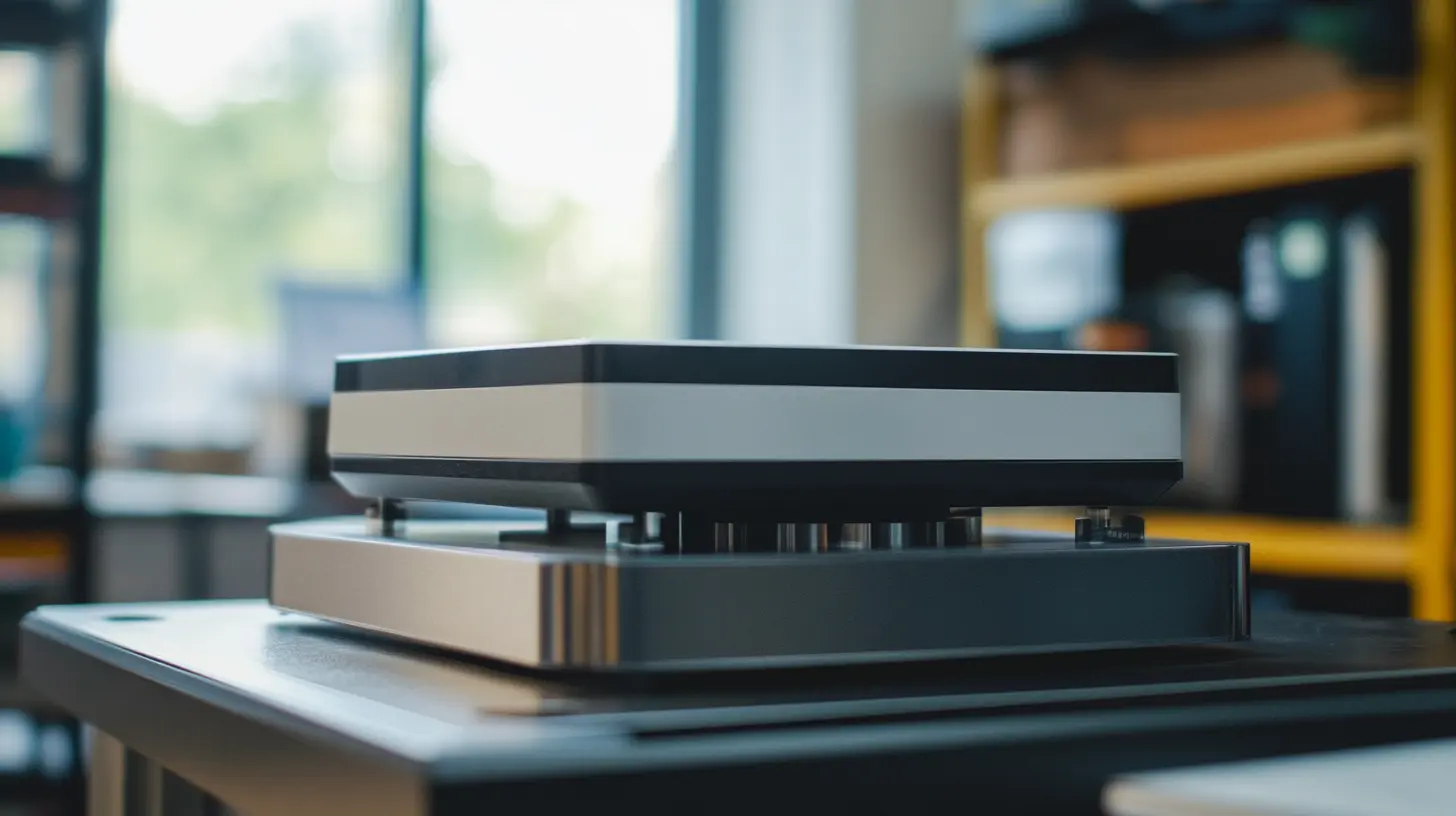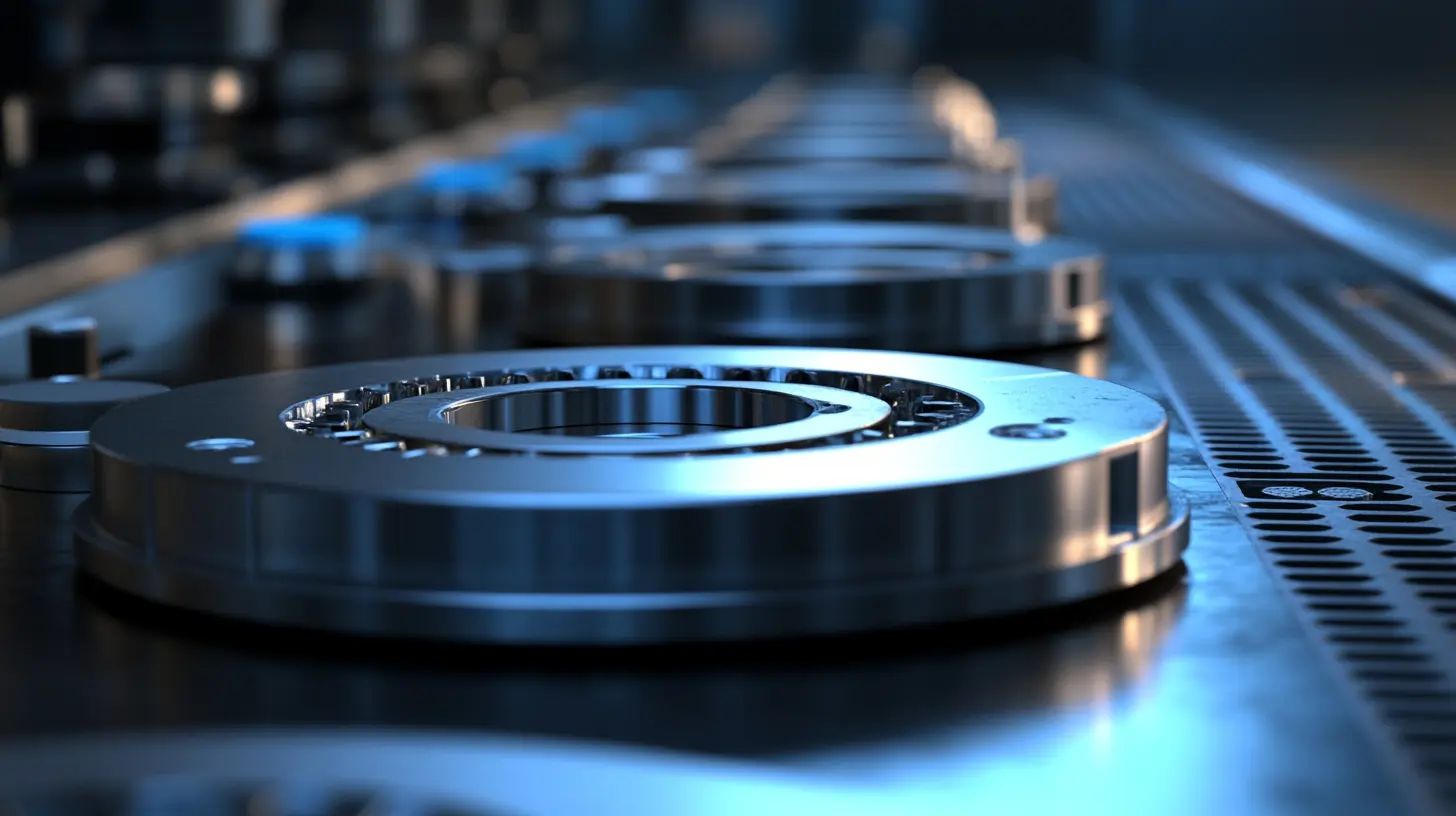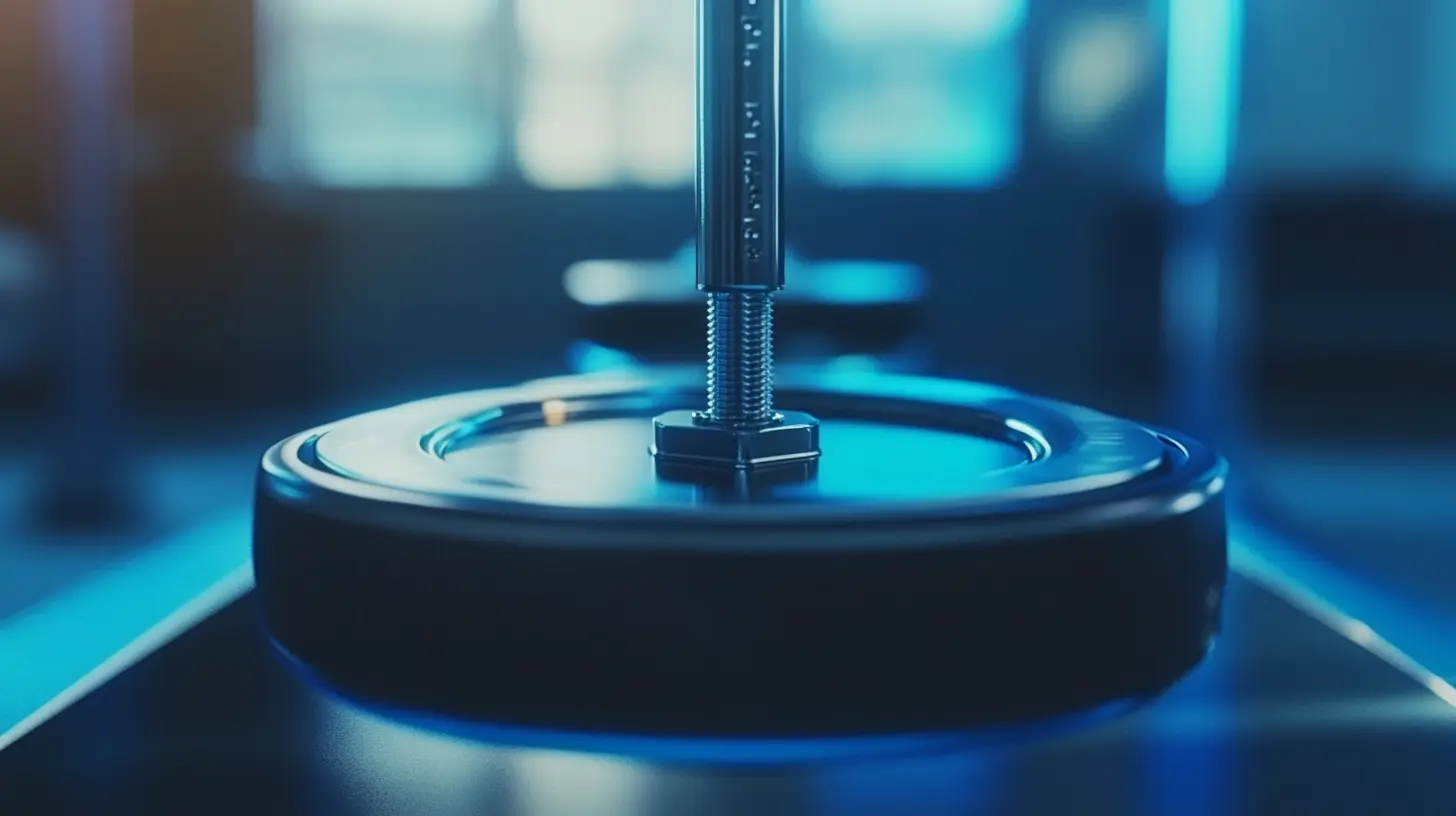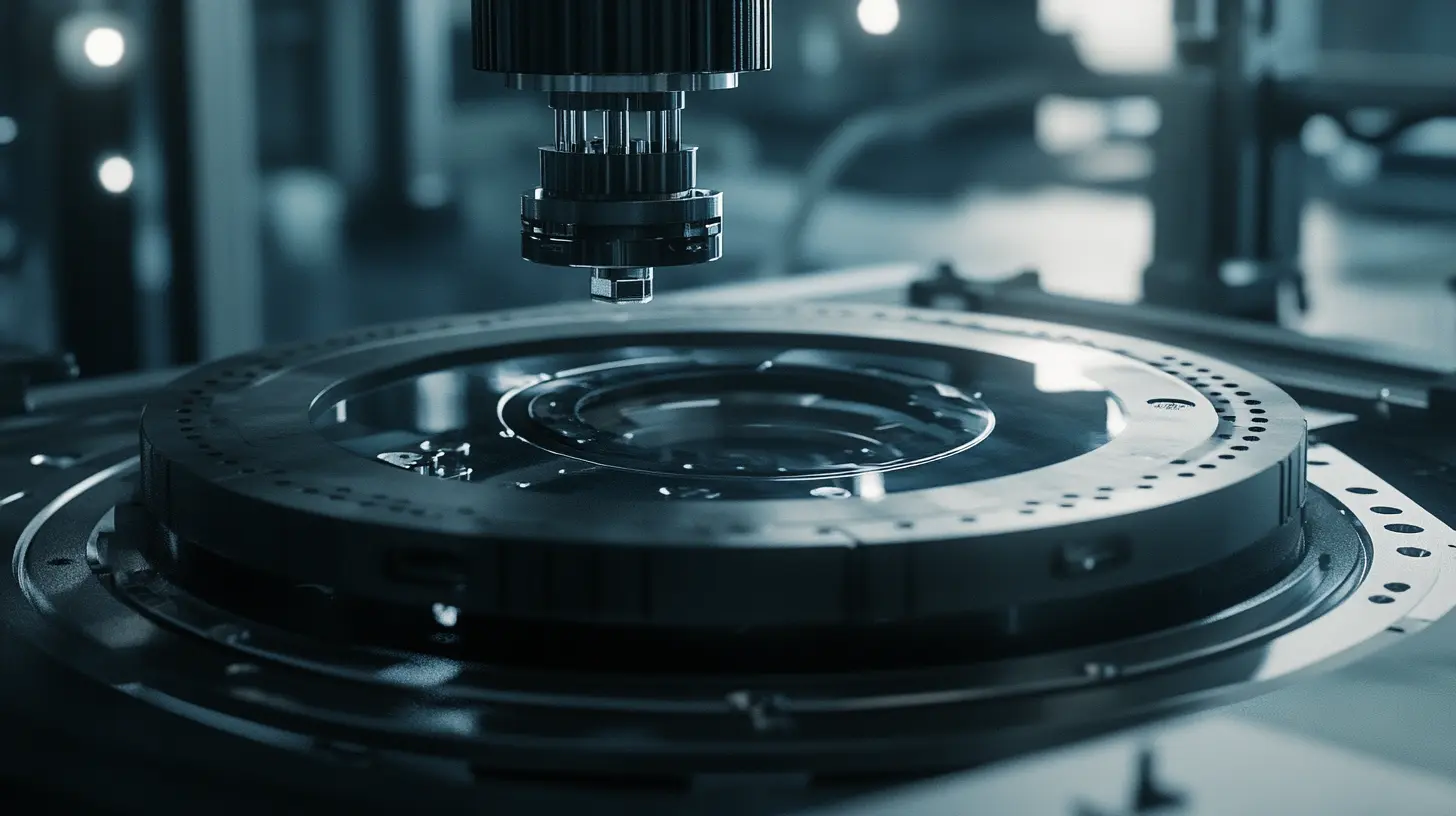 info@loadcellsensor.com
info@loadcellsensor.com 
-
Home
-
Products
-
News
-
About Us
-
Contact Us
Leave Your Message
-
 CONTACT LCS TECH
CONTACT LCS TECH -
 CONTACT LCS TECH
CONTACT LCS TECH



As industrial automation advances and keeps changing with time, so also is the consideration for the application of its advanced technologies in enhancing operational efficiency as well as precision. One example of its components that stand on the frontier of transformation is the Weight Sensors. With a growing number of industries that automate their integrated processes and better allocate their resources, the use of weight sensors expands in several applications-from monitoring material loads in manufacturing to ensuring safety in logistics. The weight sensor is often preferred for its real-time accuracy in weight measurement as it enables informed decision-making, which drives productivity and minimizes wastage.
LCS Tech Co. is a well-known Chinese company engaged in advanced strain gauge technology, which we consider the weight sensors application in automation. Since our founding in 2012, we have dedicated ourselves exclusively to developing and supplying to customers in 40 countries with top-notch load cells, force sensors, and torque transducers. The epitome of "Made in China" succinctly states our values and positions us as innovative leaders in weight sensor technology. In the futurism of weight sensors for industrial automation, it becomes necessary to understand the major trends and advances shaping their efficacy and applications within the industry.

Weight sensors have indeed become critical components in industrial automation. In fact, they perform many applications with the functionality of weighing materials and products. These sensors measure and give real-time figures for weighing so that process optimization and quality control can be carried out. For example, continuous checking of weight provides precise packaging, less spoilage, and makes decisions with more accurate metrics. The recent technological advances in weight sensors speak volumes about their use in almost all industries. New packaging systems have emerged with quite an innovative and sophisticated weighing mechanism for accuracy and efficiency. With developments in the industrial world, these sensors will also complement other intelligent technologies such as robotics and revolutionize automation for more intelligent intelligent responsive manufacturing ecosystems.

Weight sensors are important instruments in industry automation, ranging from packing to inventory. It is recently known that weight detection devices patented by an innovator effectively target net-weight packaging machines. The innovations will, among others, improve the packing process by tightly measuring and minimizing wastage during manufacturing.
Weight sensors are not limited to packaging; they're taking on a new role, integrated into smart manufacturing environments. With these weight sensors, one can track real-time weights of products through assembly lines, improving overall quality assurance and operational efficacies. With these developments, automation has really hit the industries, and this is bound to increase by weight sensors used in future smart production lines that take responsive control of varying product demands.

New technologies in weight sensor design are now bringing forward a revolution in industrial automation. Due to these inventions, weight monitoring is now more accurate and efficient, for example, in packaging systems and robotics. Included in these inventions are advanced weight sensors, which collect data in real-time, thus improving the decision-making process on manufacturing lines.
For example, patented new weighing technology allows for the packaging machine to become more accurate. This showcases a broader trend of implementation of advanced sensor technology into industrial hardware. Weight sensors are, therefore, progressively becoming more important in industrial settings, advancing the maintenance of smooth production processes and the optimization of those very processes in the move towards smarter manufacturing.

More and more, weight sensors are gaining utilization in the industrial automation scene due to their ability to optimize manufacturing processes. Recent advancements indicate that weight sensors have considerable growth projections in precision and reliability. For example, a new patented design for a machine's weighing device in packaging has recently been developed. This represents the trend toward industrial applications with much-improved accuracy.
Moreover, the growth of automation technologies lends impetus to integrating weight sensors in smart factories. These sensors allow the monitoring and data acquisition in real time, enhancing operational efficiency. The ongoing development of markets predicts that these weight sensors may interact with other automated systems, which will, in turn, open avenues for novel technological developments to increase industrial efficiency and productivity.
Almost all industries have embraced weight sensors; specifically, they have become very important to industrial automation. The sensors make the actual measurements required for robots and automated systems and thus contribute to improved operational efficiency. According to the existing advancements, some innovative weight-sensing technologies specifically aim at packaging machines and industrial robots. Such technologies provide a greater control of processes like material handling and packaging, where accuracy has a direct impact on productivity.
New-age weight sensors fit right into the next movement of robotics, where robotics are becoming more sophisticated and capable of performing complex tasks. Indeed, for example, some new actuator technologies have surfaced to enhance responsiveness in robotic applications. Equipped with weight sensors, these are able to perform the task with more precision and optimize workflows through real-time feedback. As industries adapt to smarter manufacturing processes, weight sensors will, no doubt, have a significant role in defining the future of automation.
Current weight sensing technologies are faced with increasing challenges and limitations, especially as industries push towards smarter automation solutions. Conventional weight sensors, although uniquely beneficial to manufacturing processes, are very rigid when subjected to severe dynamic conditions. As automations advance, so does the necessity for those kinds of sensors that give precise real-time feedback against various conditions.
Recent improvements necessitate that new avenues be opened for innovations in weight sensing with particular reference to today's future factories that have embodied intelligence. For instance, new patents being worked on concerning advanced packaging-weighing devices promise better weight measuring and efficiency. The extra complexity of integrating new technology solutions within existing industry infrastructures adds yet another layer of issues. A clear understanding of these restrictions should accompany any technologies under exploration toward the development of future automation systems containing high levels of robustness and responsiveness.
Maybe there are some areas of industrial automation where integration of IoT and AI could be a differentiator for weight sensors. Industries are increasingly requiring accurate measurements for process optimization. Therefore, smart weight sensors using these technologies should provide real-time data analytics and make the best use of decision-making. This all opens up the continuous monitoring of the manufacturer's systems, which would result in high accuracy and very low waste.
Recent advancements in sensor technology yet reaffirm this trend. Almost 90% of publicly listed sensor companies in China report that their performance has improved. Therefore, the market will experience dynamic growth. Sensory innovations, such as electronic-skin-like tactile sensors, further augment weight sensor operations to interact with other smart systems in industrial settings. The trends defining the evolution of weight sensors by IoT and AI are indicative of a larger push for smarter, more automated manufacturing processes.
Weight sensors serve a purpose in industries for improving their manufacturing efficiency. Recent cases have illustrated the various uses of cases in which the adoption of this technology has transformed processes in various industries as follows. Take for example the advanced weight sensing technology being used in packaging systems in some companies, enabling precise measurements and less waste. This does not just optimize the production process; it also guarantees quality-a necessity in tough marketplaces.
On the other hand, weight sensors innovations keep breeding smarter manufacturing solutions. A new patent in weight measuring devices would provide yet another testament to the never-ending drive of industries for innovations that would simplify their operations. Such innovations allow manufacturers to achieve a more accurate approach in handling products and inventory, which illustrates an optimistic future of weight sensors in the industrial landscape. Surely, as automation progresses, these sensors will surely enrich the workflow and sustainable nature of manufacturing.
Industrial automation has a promising future concerning the benefits of weight sensor technology due to advancements, such as Quasi Direct Drive actuators, aiming to satisfy the dynamic needs of robotic systems. This integration enhances robots' dynamic responsiveness while allowing precise detection and management of loads that are crucial for efficient automation.
The recent patent issued for a weight measurement device in packaging machinery strongly confirms how weight sensors will play a vital role in ensuring the accuracy and efficiency of production lines. The weight sensor technology demand is likely to grow as industries embrace smart manufacturing since advanced weight sensors must synchronize smoothly with diverse automation technologies to herald new industrial efficiency and precision.
As industrial automation continues to advance, so too will the importance of regulatory considerations and standards for weight sensors. Application of weight sensors develops into a central role in various industrial functions-from packaging to quality control. Making these sensors comply with strict regulations will keep the product quality and safety intact while allowing for maximum efficiency in operations.
A recent development point out such advancements in precision weight measurement-in fact, a new patent for a net weight packaging machine showcases innovations making weight measurements precise. Regulatory compliance will not only strengthen the reliability of the products but also further the faith of consumers in the automated processes. As weights sensors become increasingly sophisticated within industries, so too will the need to comply with standards as we make our way through the increasingly complex world of modern manufacturing and automation.
Weight sensors are becoming essential in various key industries, particularly within industrial automation, packaging machines, and material handling.
Weight sensors provide accurate measurements that are crucial for robots and automated systems, enhancing control in processes and impacting productivity.
Companies are developing innovative weight-sensing technologies tailored specifically for packaging machines and industrial robots to enable more precise control.
The integration of IoT and AI is revolutionizing weight sensor capabilities by providing real-time data analysis, improving decision-making efficiency, and enhancing monitoring systems.
Nearly 90% of publicly listed sensor companies in China have reported growth in performance, indicating significant market expansion for weight sensors.
Tactile sensors, similar to electronic skin, enhance the functionality of weight sensors, allowing them to interact more effectively with other smart systems in industrial settings.
By leveraging advanced weight sensors, new actuator technologies provide better responsiveness in robotic applications, enabling improved precision and real-time feedback to optimize workflows.
The move towards smarter, more automated manufacturing processes is driving the evolution of weight sensors, aided by advancements in IoT and AI technologies.
Smart weight sensors facilitate continuous monitoring and precise measurements, which helps manufacturers optimize processes, leading to increased accuracy and reduced waste.
As industries adopt smarter manufacturing processes, weight sensors will become pivotal in shaping the future of automation and enhancing overall operational efficiency.
